The Painful Reality of Termite Bite: A Personal Experience
I’ve always been fascinated by the world of insects, especially termites, despite the occasional bug bite. These tiny creatures, including termite swarmers and soldier insects, play a crucial role in our ecosystem, but their bites can be a real concern, especially when considering bug infestations and termite droppings. Termite bites from solider termites are often overlooked, yet they can lead to discomfort and irritation. Historically, termites have been around for millions of years, serving as nature’s recyclers, much like a bug bite.
However, when they invade our homes, their presence as a termite infestation becomes more than just an annoyance, especially with termite soldiers from rival termite colonies and the sight of termite droppings. Understanding the signs of termite bites and how to treat them is essential. I want to share my insights on identifying these bites, particularly in the context of termite infestation, and the best ways to manage termite populations and implement termite prevention against rival termite colonies. This knowledge can help protect not only our homes from termite bite but also our well-being through termite prevention.
Key Takeaways
- Termites can bite humans, but they typically do not pose a significant threat as their bites are rare and usually not harmful.
- While termite bites are generally not dangerous, individuals may experience mild irritation or allergic reactions, so it’s important to monitor any unusual symptoms.
- To prevent termite infestations, regularly inspect your home for signs of termites, such as mud tubes or damaged wood that bit.
- Keep your home dry by fixing leaks and ensuring proper drainage, as termites thrive in damp environments, bit by bit.
- Seal any cracks or openings in your home’s foundation, even just a bit, to minimize entry points for termites.
- Consider consulting a pest control professional if you suspect a termite problem to ensure effective treatment and prevention strategies, bit.
Can Termites Bite Humans
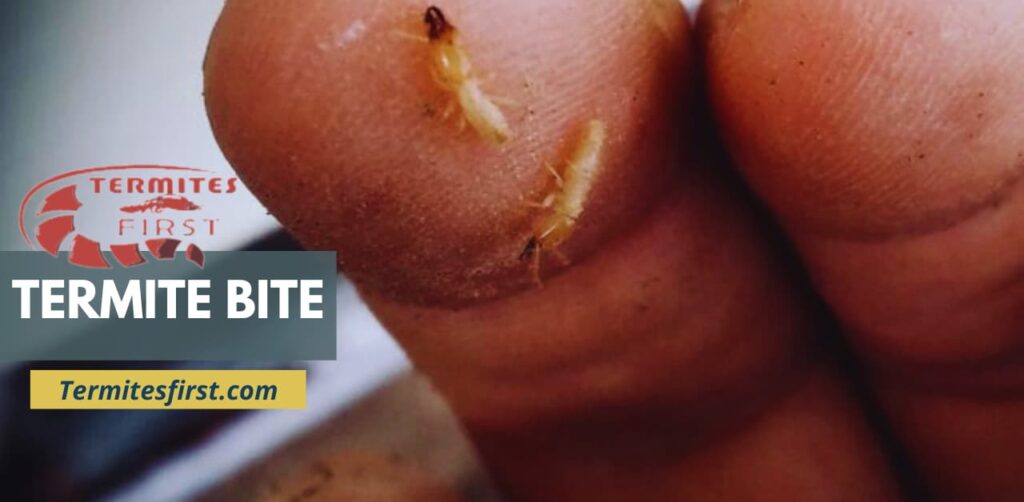
Understanding Termite Behavior
Termite colonies have a complex social structure. Each colony consists of workers, soldiers, and reproductive members. Workers build nests and gather food. Soldiers protect the colony from threats. I find it fascinating how these roles, like a termite bite, contribute to their survival.
Termites prefer dark, damp environments. They thrive in wood, soil, and decaying plant matter. This preference influences their nesting habits and feeding behavior. When I observe them in my backyard, I notice they avoid light and open spaces, likely due to a termite bite.
These insects are generally non-aggressive. They do not seek out humans for feeding. Instead, they focus on decomposing wood and organic material. Their diet does not include human flesh or blood.
Circumstances of Bites
Termite bites are extremely rare. Most species do not bite humans or animals. Accidental bites may occur when handling termites directly or if they feel threatened. I remember a time when I accidentally disturbed a nest and got bit while gardening. The termites reacted defensively but did not bite me.
The likelihood of encountering a termite bite is minimal compared to other insect bites. For instance, mosquitoes and fleas are far more common pests that actively seek blood to bit. Understanding this helps alleviate fear surrounding termite interactions.
Common Misconceptions
Many people believe termites pose a danger to humans through biting. This misconception stems from their destructive wood-feeding habits. However, termites primarily consume cellulose found in plants and wood, bit by bit. Their impact on structures is significant, but they are not a direct threat to human health, bit.
Often, termite bites are confused with those from more common pests like mosquitoes or fleas. These insects actively seek out blood meals to bit, unlike termites, which do not feed on living organisms. I often explain this bit of difference to friends who worry about termites in their homes.
Education is key in dispelling these myths. Understanding termite behavior helps clarify that they are not parasitic insects that target humans for feeding or bit. Awareness can lead to better pest management strategies and reduce unnecessary panic over a bit of termite presence.
Health Risks of Termite Bites
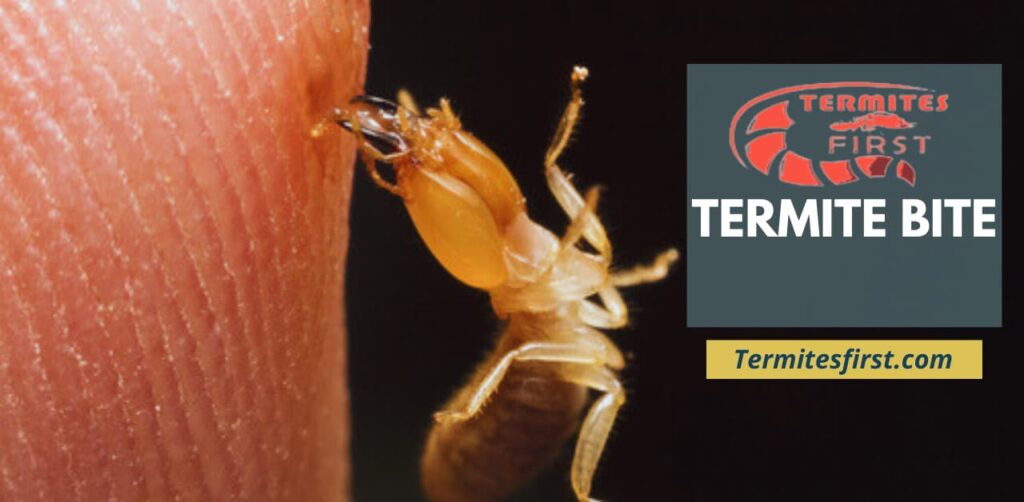
Potential Allergic Reactions
Termite bites are rare. However, some people may still experience mild allergic reactions. Symptoms can include localized redness or swelling at the bite site. I once read about someone who had a small reaction after a suspected termite bite. They noticed a slight itch and bit of swelling that lasted a few hours.
If you notice these symptoms, monitor them closely. Consult a healthcare professional if your allergic symptoms persist or worsen after a suspected bite. Allergic reactions can differ from person to person, so it’s essential to take them seriously.
Infection Possibilities
Keeping bite areas clean is crucial to prevent infection. This applies to any insect bite, including possible termite bites. While termite bites are unlikely to cause severe infections, any break in the skin can be susceptible to bacteria. I always make it a point to clean any bite area thoroughly with soap and water.
Seek medical attention if you see signs of infection. Increased redness, pus, or warmth around the bite area can indicate an infection. Early intervention can help prevent more serious complications.
Comparing with Other Insects
Termite bites are not common compared to other pests like mosquitoes or fleas. Termites primarily feed on wood and plant material, not blood. This difference in feeding habits explains why interactions with humans are infrequent.
Mosquitoes, for example, actively seek out humans for their blood meals. Their bites are often painful and can transmit diseases like West Nile Virus or Zika virus. In contrast, termites play a crucial ecological role by breaking down dead plant material and recycling nutrients back into the soil.
Understanding these differences helps highlight how the ecological role of termites differs significantly from harmful biting insects. Termites contribute positively to their environment, while mosquitoes often pose health risks.
In summary, while termite bites can occur, they are relatively uncommon and usually not dangerous. Awareness of potential allergic reactions and infection possibilities is essential for anyone who suspects they have been bitten. Keeping the area clean and monitoring for unusual symptoms can help manage any risks associated with these bites.
Preventing Termite Infestations
Home Maintenance Tips
Implementing preventative measures is crucial in avoiding termite infestations. Sealing cracks and crevices around your home can deter these pests from entering. I often check windows and doors for gaps. A simple caulking job can make a big difference.
Maintaining proper drainage around the foundation is equally important. Excess moisture attracts termites. Regularly clean gutters and downspouts to ensure water flows away from the house. Scheduling inspections of wooden structures can help catch early signs of termite activity. This proactive approach prevents extensive damage from unchecked termite infestations.
Professional Inspection Benefits
Hiring pest control professionals provides significant advantages for termite inspection and treatment. Trained experts can conduct thorough evaluations that homeowners might overlook. They possess the tools and knowledge to identify hidden infestations within walls or under floors.
Early detection is key to saving money on repairs related to termite damage. I’ve learned that addressing termite issues promptly can prevent costly renovations later. Investing in professional treatments can lead to long-term cost savings, making it a wise choice for homeowners.
Natural Repellents
Exploring natural repellents offers an eco-friendly way to deter termites. Essential oils such as orange oil or neem oil can be effective against certain termites. Diatomaceous earth is another option that disrupts the exoskeleton of these pests, leading to dehydration.
Using these natural solutions as part of an integrated pest management approach enhances effectiveness. I recommend researching various methods and applying those that align with your comfort level regarding chemicals in your home. Environmentally friendly options protect not only your home but also the surrounding ecosystem from harmful substances.
Conclusion:
Termite bites are rare but can pose health risks. I’ve covered how termites generally don’t bite humans, yet their presence can lead to other issues. Preventing infestations is crucial for maintaining a safe environment.
Awareness is key. I recommend regularly inspecting your home and seeking professional help if you suspect an infestation. Don’t let termites take over; stay proactive. Your safety and comfort depend on it. Take action today!
FAQ’s:-
Yes, termites can bite humans, but they rarely do. Their primary diet consists of wood and plant material. A bite may occur if they feel threatened.
Termite bites are generally not harmful to humans. They may cause minor irritation or allergic reactions in sensitive individuals, but severe health risks are uncommon.
Termite bites may resemble other insect bites, causing redness and swelling. If you experience unusual symptoms, consult a healthcare professional for advice.
Most termite bites do not require medical treatment. However, if you have an allergic reaction or infection, seek medical attention promptly.
To prevent infestations, eliminate moisture sources, seal cracks in your foundation, and store firewood away from your home. Regular inspections can also help catch problems early.
If you find termites, contact a pest control professional immediately. Early intervention is key to preventing extensive damage to your property.
While termite treatments target infestations, they won’t address bites directly. Focus on treating any bite symptoms and consider pest control for long-term prevention.

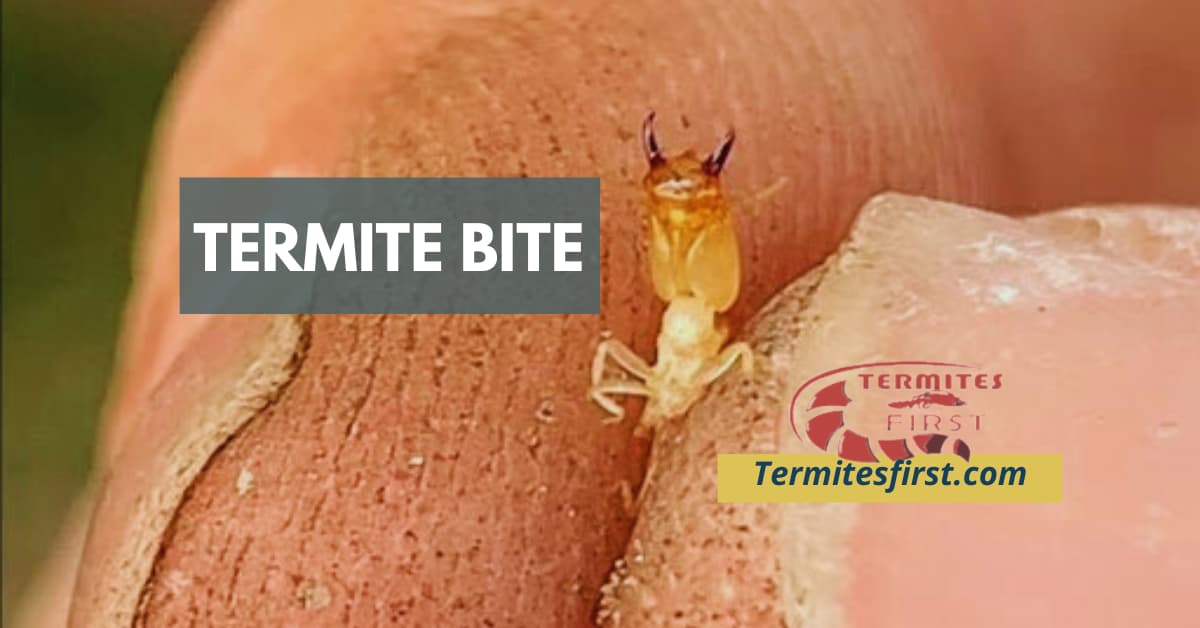
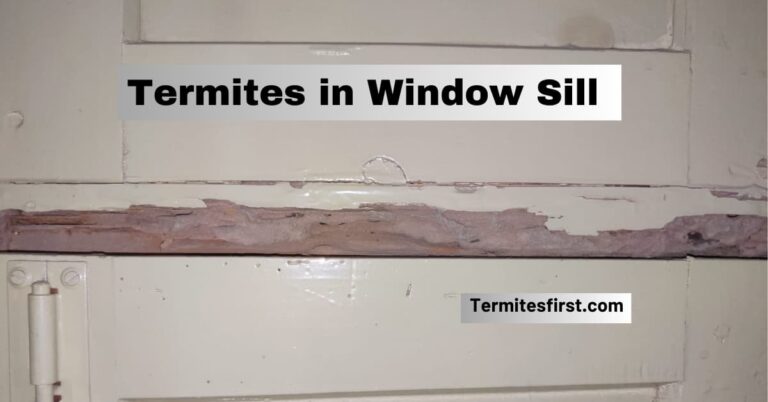

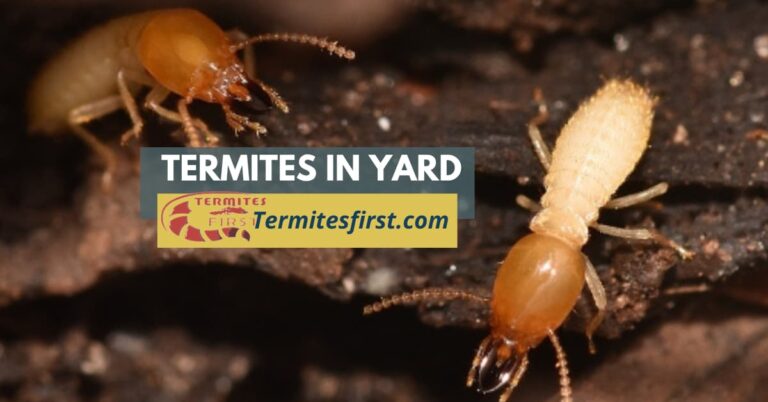
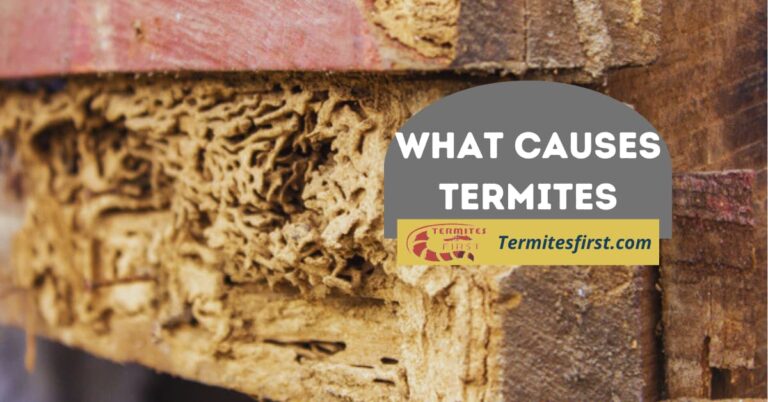
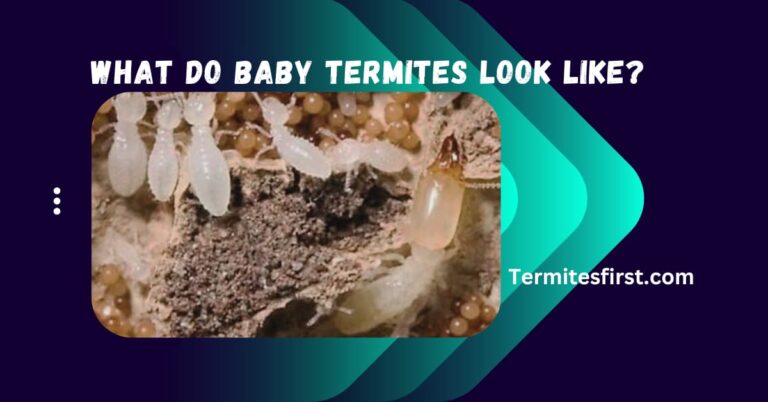
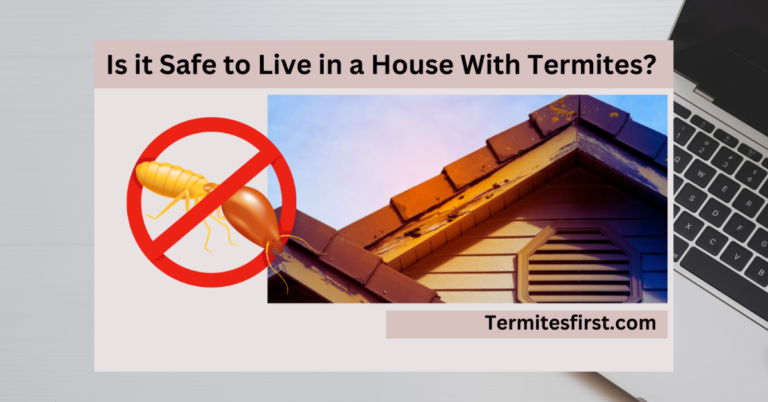
One Comment